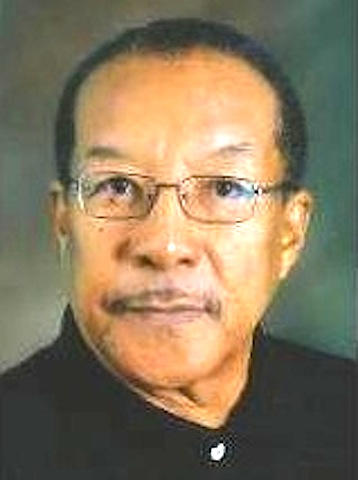Oliver Mills: Does a deep state operate in Caribbean governance?
By Oliver Mills

The term “deep state” is being used with much frequency in the current political climate in the United States of America.
According to a source, the deep state refers to a form of covert government with influential power networks, operating independently of the official leadership of the state, advancing its own agenda. It could involve career public servants fostering their private interests, while opposing those of elected officials using obstruction and resistance tactics.
The Merriam-Webster dictionary defines the deep state as an alleged secret network of non-elected government officials, and sometimes private entities operating extra-legally to influence and enact government policy.
To me, both these definitions are rather interesting. They explain clearly the concept of the deep state, the actors involved, and their intentions.
My view is that the idea of the deep state could have multiple actors as well as single individuals, and even temporary groups that join to foster opposition against the policy of the state, or aspects of a particular policy, and even to promote certain policies that advance the public good.
The deep state emerges when individuals with shared interests in a policy find that its implementation will greatly curtail things they have advocated for over time. They then present a quiet united front against the policy or policies. This takes the form of presenting arguments that would either modify it immensely, or cause it to be abandoned in favour of those that advance the needs of the deep state actors.
Some deep state actors are so subtle that they are able to portray what they want as what the government really needs, so that the initial policy appears untouched, when in fact deep changes are made to it. Often the official state actors have little awareness of what has happened. In many instances, the objectives of the elected officials are manipulated and softened by the deep state, and their implementation is either delayed or significantly altered if it does not meet the satisfaction of the deep state. The end product emerges significantly different from its initial intentions. In other instances there is deliberate sabotage of government programmes by the deep state.
In the Caribbean, the concept of the deep state is hardly evident and is barely ever talked about. However actions by individual actors or groups in the employ of the government often surface. For example, particular members of a committee or board appointed by the official state to deal education or tourism will see that certain suggestions do not cohere with what they would prefer. They would therefore present positions diplomatically that would cast doubt on the points being made, or even suggest in a subtle way that it would not go down well with the public. The purpose is to prevent the suggestions coming into effect. Also in discussing scholarship awards, some committee members might indicate that certain applicants should not be considered. Deep state members would show concern about the consequences of not awarding scholarships to these persons, psychologically pressuring the committee to make the awards, even against its will.
The deep state might even pressure vulnerable ministers not to appoint certain persons to higher positions in a ministry, because of alleged political unreliability. Or not to pursue a position regarding tourism policy, even though there is a potential majority position in support of it. Arguments will be presented such as its negative impact on the community, or the possibility of its bad influence on the culture because their view is not entertained. The point is that the deep state has its own tourism agenda which is not that of the society at large.
But are the activities of the deep state always harmful to the policies of the official state?
There are instances where deep state activities are designed to assist, or make the official state aware of the damage that might happen as a result of its intended actions. In this sense it protects the official government, staving off any harsh reactions by the opposition party, or negative impact on the society and its institutions. Further, deep state actions could be done to garner support for the official state’s actions, and undermine the position of opposition forces.
The deep state may have a more informed perspective of what is required and once implemented could benefit the government to a far greater extent than if it had not brought alternative arguments to the process. It could also be more beneficial to the society at large.
These are instances of the deep state playing a more helpful role, rather than a self-interested one. It operates to promote, and not prevent or water-down what could be in the interest of the greater good.
END
Oliver Mills is a former lecturer in education at the University of the West Indies Mona Campus. He holds an M.Ed degree from Dalhousie University in Canada, an MA from the University of London and a post-graduate diploma in HRM and Training, University of Leicester. He is a past Permanent Secretary in Education with the government of the Turks and Caicos Islands





